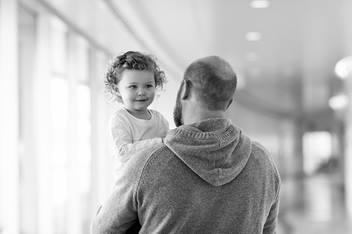After a Heart Transplant
What Happens After a Transplant?
Close follow-up post transplant is essential for success. Outpatient clinic visits range from weekly to at least every 3 months with an ECHO and lab work during each appointment. Nationally, post transplant survival rates are 86% one-year post transplant and 80% three years post transplant, respectively. Post transplant success depends largely on cooperation. It is important to follow the doctor’s orders and always take medications as instructed. It is necessary to follow a heart healthy diet and always avoid alcohol, drugs and tobacco.
What Happens if the New Organ Is Rejected?
Another important aspect of heart transplant is the prevention of organ rejection. The highest risk for rejection is within the first several months after transplant, however it is a lifelong risk. Cardiac catheterizations with heart biopsy will be performed at 1, 2, 3, 6 & 12 months post transplant to check for rejection. The coronary arteries, the vessels that supply blood and oxygen to the heart, will be checked yearly on each anniversary of the transplant.
What Are the Symptoms of Rejection?
The signs and symptoms of rejection include:
- Irregular heart beats
- Decreased activity
- Sweating with feedings
- Difficulty breathing
- Fever
- Vomiting
- Irritability
Rejection symptoms could be very similar to symptoms of other illnesses, therefore when there is any concern, please call your transplant coordinators.
How Can I Help Prevent Rejection?
Patients must take specific medications (immunosuppressive medications) for the rest of their lives to help prevent rejection.
Common anti-rejection drugs include:
- Tacrolimus (FK506)
- Cyclosporin (Neoral)
- Azathioprine (Imuran)
- Mycophenolate (CellCept)
- Prednisone
These drugs may have with serious side effects including high blood pressure, kidney damage, increased blood sugar, swelling, increased risk of infection, tremors, skin cancer and lymphoma.
Should I Be Concerned About Infection?
Another major effect of anti-rejection drugs is the increased risk of infection. The drugs used to prevent rejection suppress the cells that help prevent various types of infection in your body. You will be given separate medication(s) to prevent infection.
Signs & Symptoms of Infection:
- Low grade fever
- Chills
- White patches inside mouth and throat
- Runny nose or sore throat
- Open cuts with redness and drainage
- Nausea/Vomiting/Diarrhea
Handwashing with an antibacterial soap or waterless hand gel is the best defense against infection. Take care of cuts and sores. Clean with soap and water. Keep cuts dry and covered. It is important to stay in constant communication with the Heart Transplant Team. Please call your transplant coordinators if you experience any of the above symptoms.



